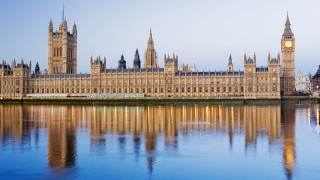Abortion debate held at Westminster
- |

A debate on whether the upper time limit for abortion should be reduced was held in Westminster Hall this morning (31 October).
The debate, secured after a ballot in the House of Commons, was led by MP Nadine Dorries, and was well attended by a number of MPs as well as concerned members of the public.
Ms Dorries called for the debate in the wake of comments by three cabinet ministers, in addition to Prime Minister David Cameron, in support of reducing the 24 week abortion limit.
Revisit
She was joined by other MPs, including fellow Conservative Fiona Bruce, in arguing that the upper limit should be revisited in light of medical advances which have made it is possible to save premature babies born before 24 weeks.
It was noted in particular that the UK’s 24 week limit is inconsistent with the position in the majority of EU countries, 16 out of 27 of which have an upper limit of 12 weeks.
Evidence was cited demonstrating that babies in the womb are able to experience pain after 20 weeks gestation, and that women are more likely to experience mental health problems, such as depression, following a late-term abortion.
Inconsistency
Ms Dorries quoted Dr Max Pemberton in highlighting the current inconsistency whereby doctors are endeavouring to save the life of premature baby in one ward, whilst sanctioning the abortion of a healthy baby at 24 weeks in another.
She added: “It is clear to me that we cannot allow the present situation that currently exists in our hospitals to continue. In one room in a hospital there will be a premature, poorly baby born at 22 or 23 weeks, and the NHS will throw everything that it has in helping that baby to survive.
“But in another room in the same hospital, a healthy baby will be aborted at 24 weeks. On the one hand we throw considerable money and resources to try and save a baby's life but on the other we sanction its destruction.
“The medical profession cannot make two arguments. Doctors cannot have it both ways. There is an anomaly and it has to end.”
Ms Dorries noted further that many late-term abortions result from ‘coercion’ rather than a woman’s ‘choice’ and that more adequate counselling is necessary to make women aware of the alternative options available.
Too high
It was acknowledged with concern that almost 200,000 abortions take place in England and Wales every year. The majority are carried out for ‘social’ reasons as opposed to a medical emergency, with a number of women undertaking repeat abortions.
Whilst opposing MPs, including Diane Abbott, argued against a reduction in the limit upper, it was recognised on both sides that the current abortion rate is too high and needed to be reduced.
The debate was not expected to result in a vote, but those in favour of a reduction are hoping that the issue will go to a vote in Parliament next year.
Independent counselling
Last year, Ms Dorries tabled an amendment to the Health and Social Care Bill to ensure that women who are considering an abortion are offered independent counselling, away from the abortion providers themselves.
Although the amendment did not pass after a vote in Parliament, the Government committed to holding a full public consultation on the issue.
But Health Minister, Anna Soubry, annouced in the debate at Westminster today that the consultation had been dropped, stating that she had reached her decision because the Government had no intention of changing the law on the issue.
She added: "There is other work we should be doing on counselling. I take the view that this is not the primary function we should be addressing and that is why I have taken the decision that I have.
“I am sorry if as I say there is some disappointment but the reality is that we now don't intend to change the law so it is now an otiose exercise.”
See also: MPs to debate abortion in Westminster Hall
Watch Nadine Dorries on why she called the debate >
